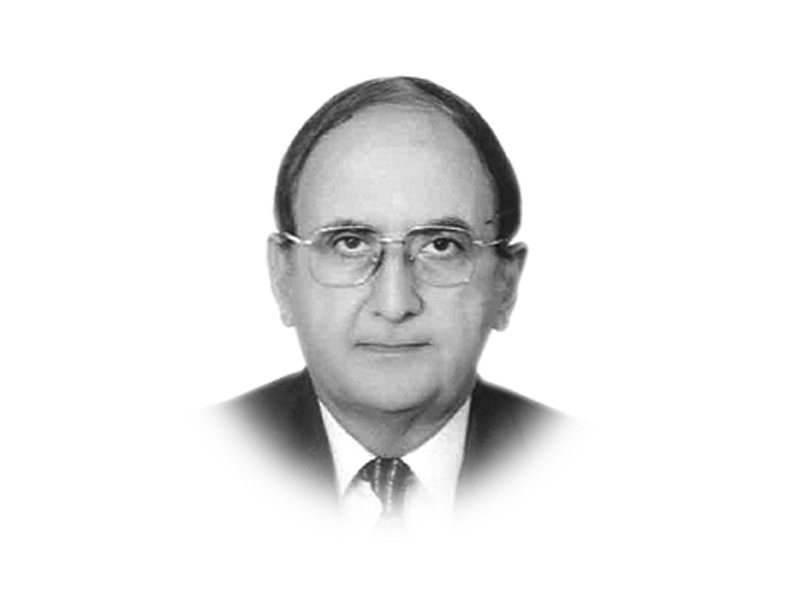
The current elections are manifesting contradictory trends. On the one hand, the Election Commission of Pakistan (ECP) has been selected through a consultative process between the government and the opposition in parliament and it is more forthright in dealing with election affairs. On the other hand, the election is faced with a new kind of challenge that can undermine the procedures and substance of the electoral exercise.
The Pakistani Taliban and their mainland affiliates, who enjoy the open and tacit sympathy of several political and societal groups, are using violence to disrupt the electoral process. They have designated three political parties for their wrath. These are liberal democratic parties, i.e., the PPP, the ANP and the MQM. The major targets are the ANP and the MQM. The PPP is so scared of the Taliban threat that its leadership has vanished from the public scene. Its candidates and party offices are targets of the Taliban attacks.
This is a new type of threat to the electoral process. In the past, no violent group had ever challenged the elections so openly and confidently. Currently, the Pakistani state authorities appear helpless in providing security. The initiative is with the Taliban and their local affiliates who decide where to hit and whom to target. The state security authorities appear on the scene after the incident to tell us the nature of the explosion and how it was done. The dead people become a part of the national data on violent deaths.
Traditionally, elections have been threatened by three major sources. First, the powerful interests, political parties and candidates would use strong-arm tactics to deter the opponents, disrupt the election campaign of the rival, use violence selectively and resort to other violations of the code of ethics for elections. There are often complaints of use of money and other material rewards for winning votes from the poor sections of society.
Second, the state machinery has been known to be used for the manipulation of elections. In the March 1977 elections, there were serious complaints of the use of the state machinery by the ruling PPP. The opposition retaliated by boycotting the provincial elections a week later. This triggered a political crisis that resulted in the military takeover by General Ziaul Haq. The complaints of official interference and the partisan role of the caretaker administration were reported in most elections from time to time, going back to the provincial elections in Punjab in 1951, the first post-independence direct elections in Pakistan.
Pakistan is now experimenting with a new type of caretaker government in the current elections at the federal and provincial levels. These caretaker governments have been selected through an elaborate consultative process involving the ruling party and the opposition and the ECP.
The third major source is the anti-election ideology subscribed to by many individuals and groups for different reasons. Invariably, elections are described as a Western implant that does not suit Pakistan’s socioeconomic and political conditions. Those rejecting the existing election system do not provide any alternative system.
Three types of arguments are given. First, the present electoral system is un-Islamic because it gives the right to vote to everybody and corrupt people can be elected. Second, some people reject elections because of its weaknesses and deficiencies. They think that anything short of an ideal model of elections is not acceptable. Make the system perfect in all respects and then hold the elections. They reject the notion of gradual improvement of the political system by practising it. Third, there are people and groups who often behave like anarchists and reject the elections and the political order by pulling together all kinds of arguments. Dr Tahirul Qadri is a good illustration of this case. At one time, Dr Qadri invokes the Constitution to justify his demands against the elections. At other times, he makes a self-serving extra-constitutional argument. He also invokes Islam and its history to justify himself.
It is interesting to note that the individuals and groups that reject elections for one reason or another are those who do not have much political following and cannot get elected. There are a large number of religious scholars and leaders of religious parties that support the holding of elections.
The traditional ideological challenge is less detrimental to elections and democracy than the current Taliban threat because the Taliban have not only launched an ideological offensive but are also using violence in an indiscriminate manner to disrupt the election process.
What makes their threat a devastating development is that Pakistan’s societal and political circles are not willing to join together to condemn them. Some parties are more interested in holding their election meetings than condemning the Taliban because they do not want to lose right-wing votes. The Jamaat-i-Islami and other Islamic parties in Wahhabi/Salafi, Deoband and Ahle Hadith traditions are known for their sympathy for the Taliban. The absence of a united political front against the Taliban has emboldened them.
These political parties are unable to see beyond their immediate political and electoral gains, which may give them short-term advantage. In the long run, they will also lose when the Pakistani state becomes dysfunctional due to the increased pressure of violent hardline religious and sectarian groups. This will make democracy and elections irrelevant to the future of Pakistan.
Published in The Express Tribune, May 6th, 2013.
COMMENTS (6)
Comments are moderated and generally will be posted if they are on-topic and not abusive.
For more information, please see our Comments FAQ

1724238420-0/Untitled-design-(3)1724238420-0-165x106.webp)

1731678234-0/pete-(1)1731678234-0-165x106.webp)








@Naresh:
Cheers!
We meet again. But when? For how many years?
See my comment on today's another article over here:
http://tribune.com.pk/story/544813/females-and-fata/#comments
@wonderer Ji : . I looked many times through this piece to find something new, something we have not known for a long time, but in vain. When will we take our gaze off the rear view mirror? Why can we not look towards the future? . It is only by remembering the past that we can avoid similar disasters in the Future. . Cheers
I looked many times through this piece to find something new, something we have not known for a long time, but in vain. When will we take our gaze off the rear view mirror? Why can we not look towards the future?
@Riaz Ahmad: Sir, I have several cousin sisters in Pakistan who never got married. While the rich Pakistanis "play" in the West and raise their families away from Pakistan, never start a family with a Pakistani Muslim woman but want to rule us in other words fool us! How could a man who never like a Pakistani woman in his life lead my sisters and daughters when he has left his own in the West? I has stopped idol worshipping long ago.
A very scholarly Op Ed by the ET thanks for that. I fully agree with the author that these elections are hijacked by the fanatic terrorists. You write "Taliban and their mainland affiliates, who enjoy the open and tacit sympathy of several political and societal groups, are using violence to disrupt the electoral process. They have designated three political parties for their wrath. These are liberal democratic parties, i.e., the PPP, the ANP and the MQM." This was a systematic process and it started with the de-legitimization of last elections by the rightwing losers. The day and night campaign against each elected leader gave the impression that each elected leader is corrupt while those who never got elected are sacred cows. Now the extreme rightwing is openly massacring even the kids of these parties and there is euphoria among the rightwing beneficiaries of the terrorist acts. The silence of “independent” judiciary and armed forces is deafening and the strategic assets are doing the job for the future of rightwing parties of Punjab.
Pakistan at long last, has been presented with a golden opportunity, to move away from a corrupt and regressive status quo, by voting for Imran Khan and PTI. It will all depend on the wisdom of the masses to avail of this opportunity. On second thoughts, I find it hard to be optimistic; had this nation, even a little bit of political wisdom, it would'nt be in such a mess in the first place.